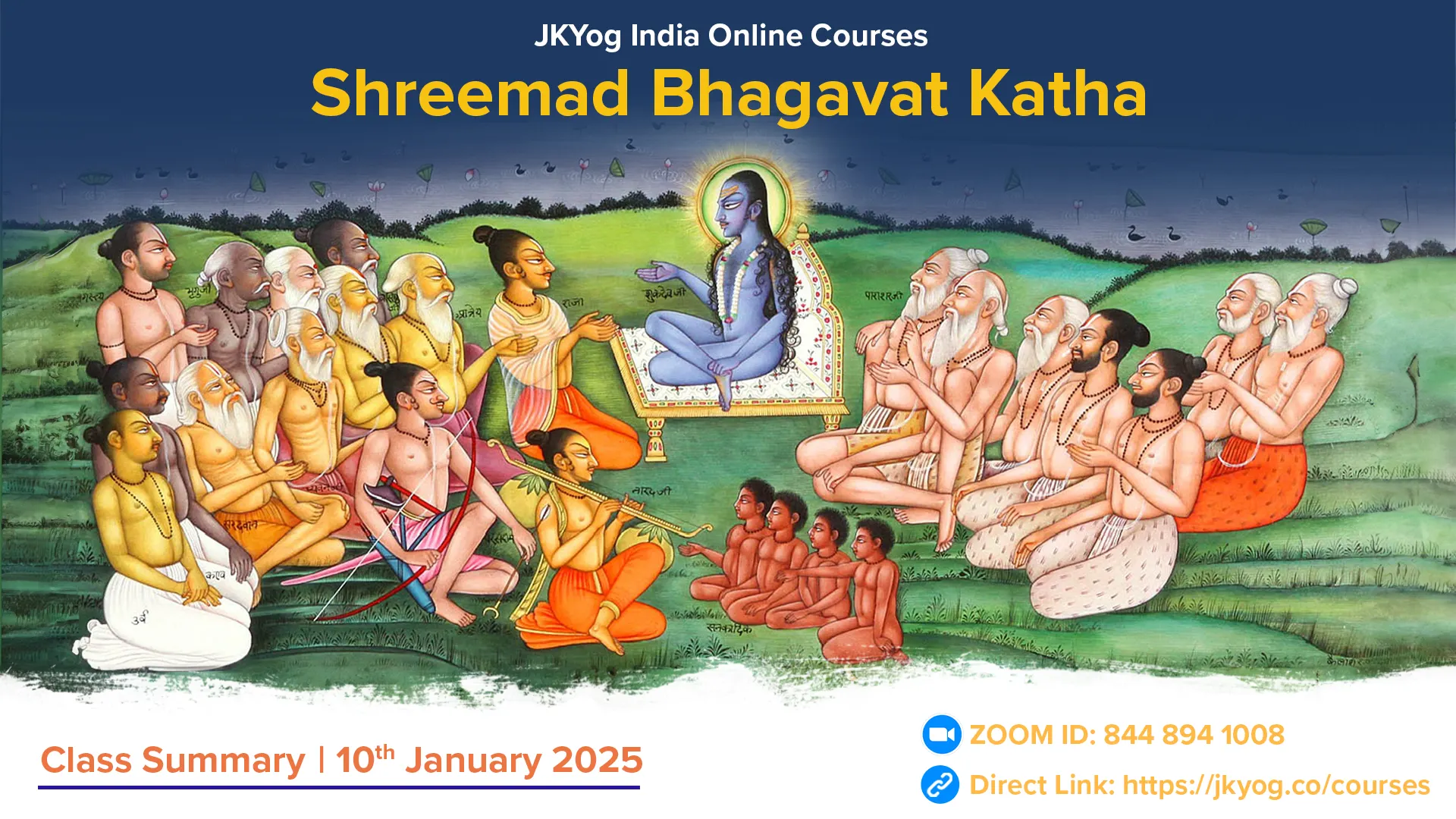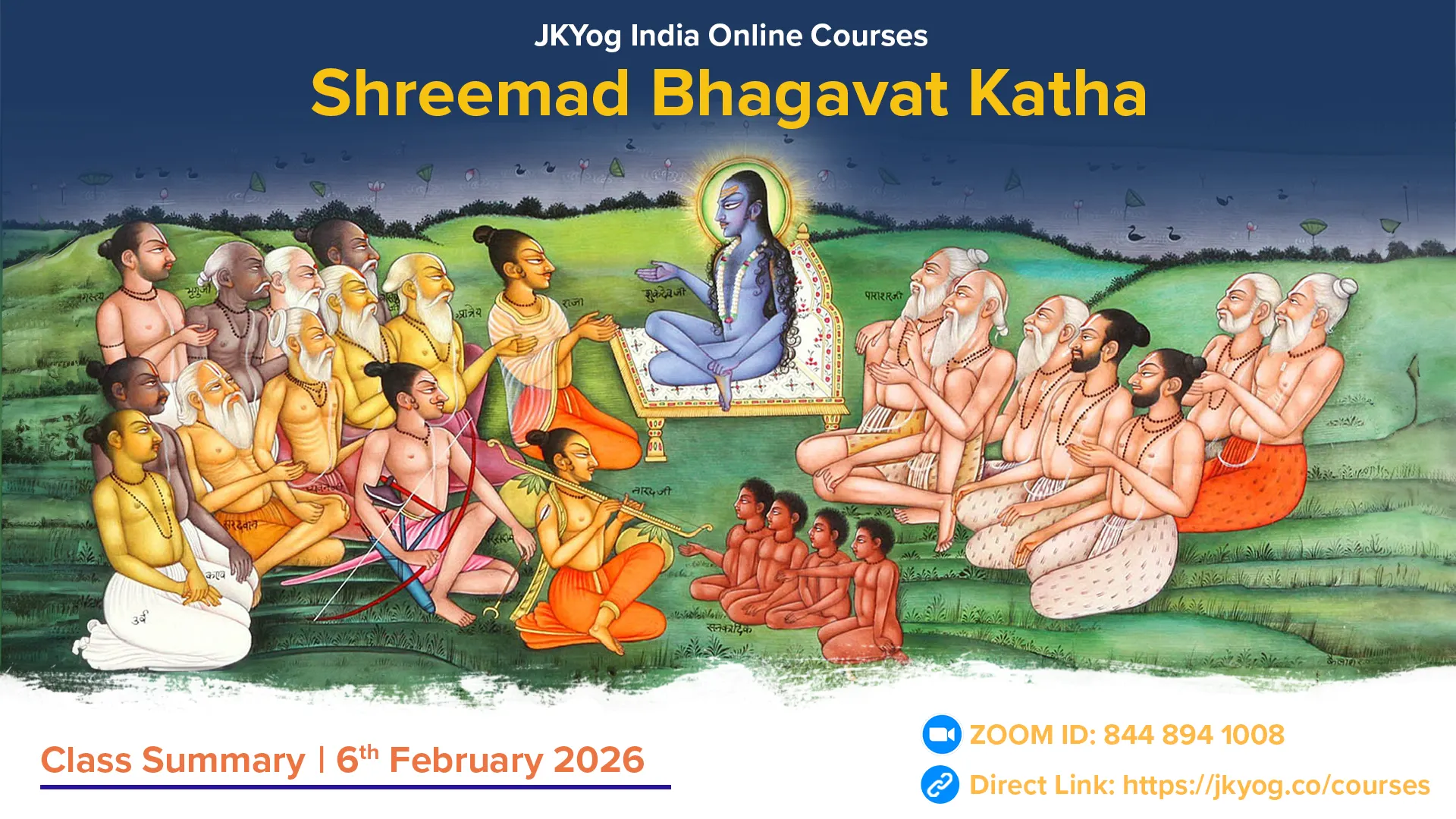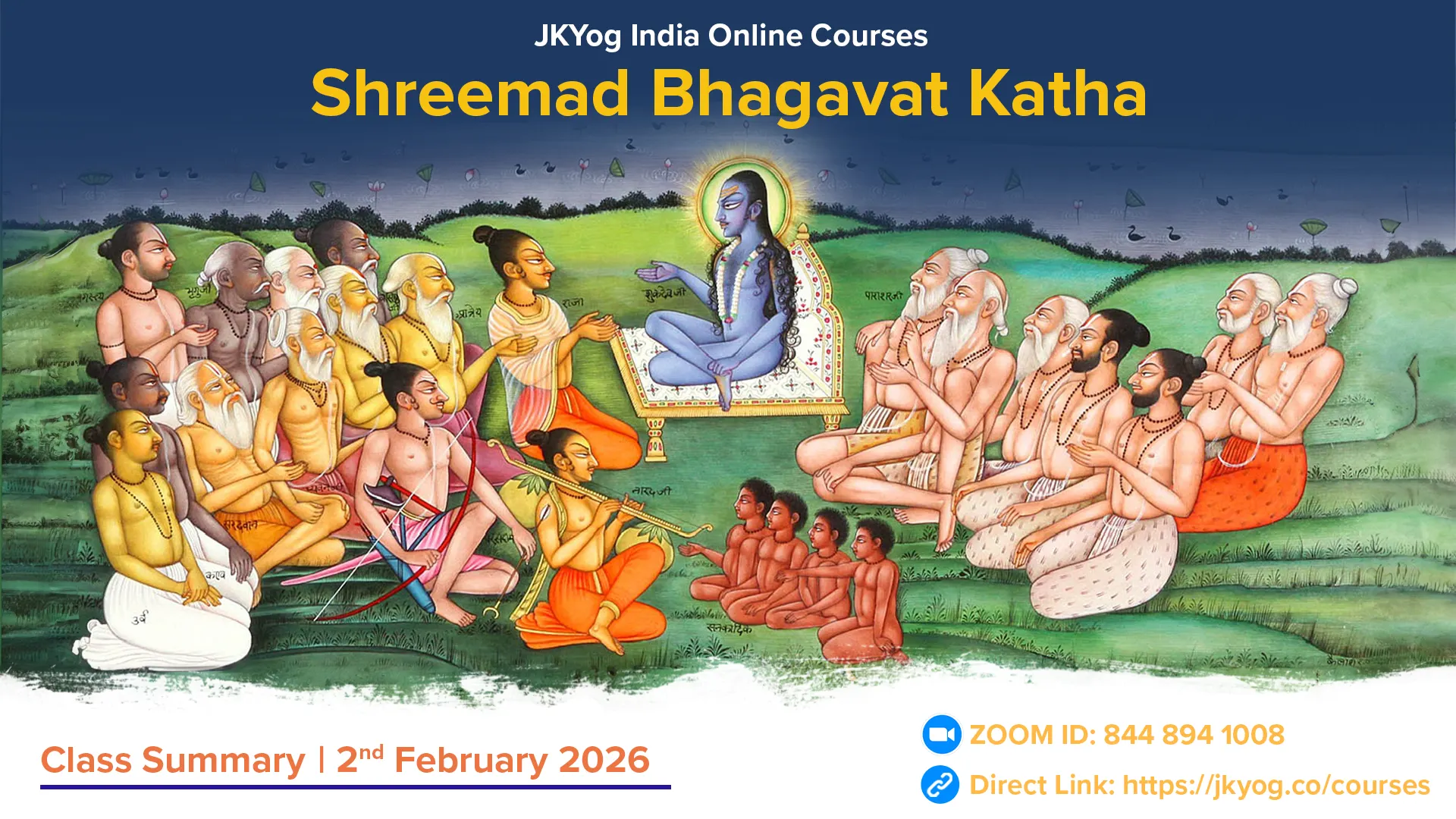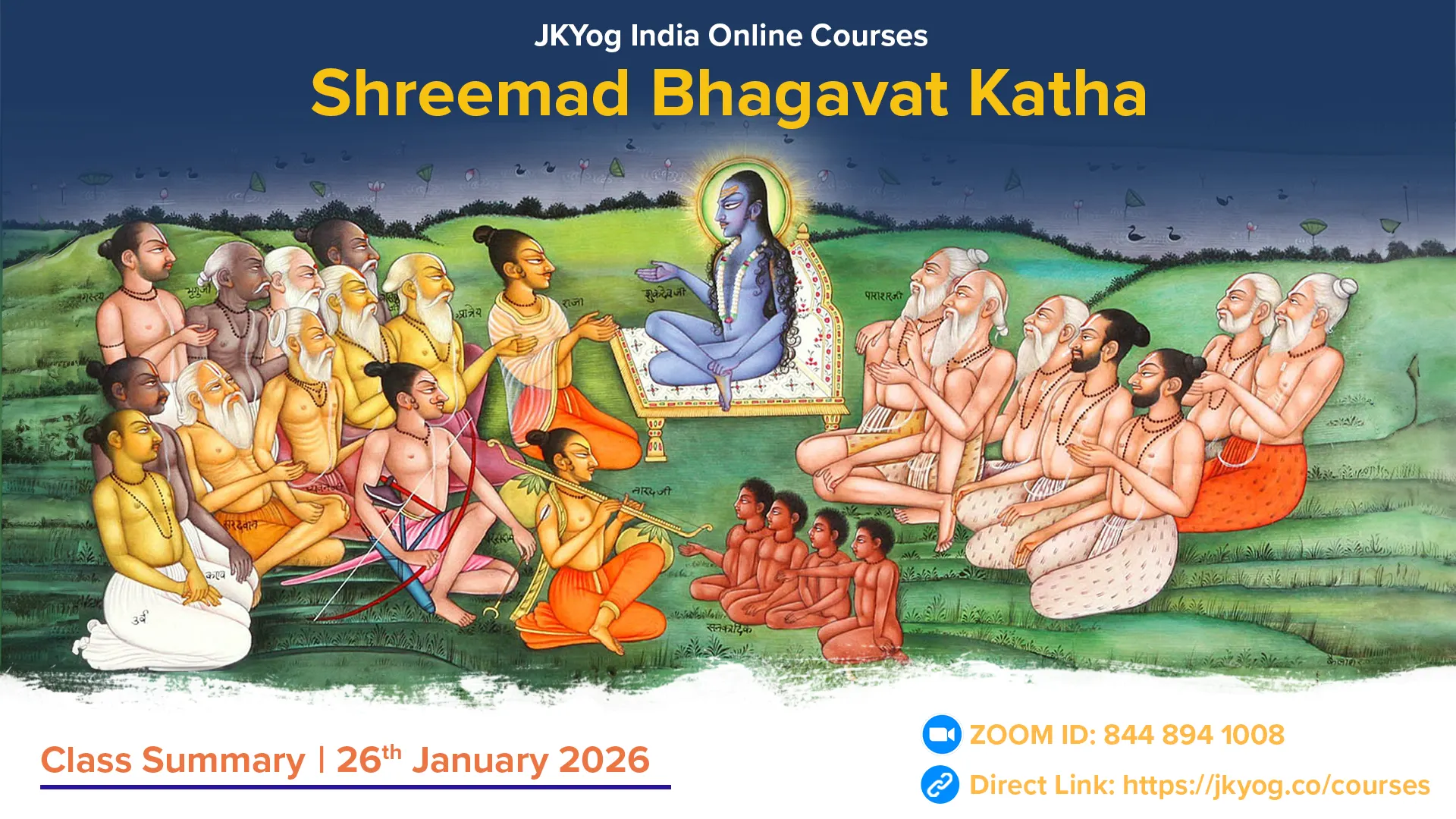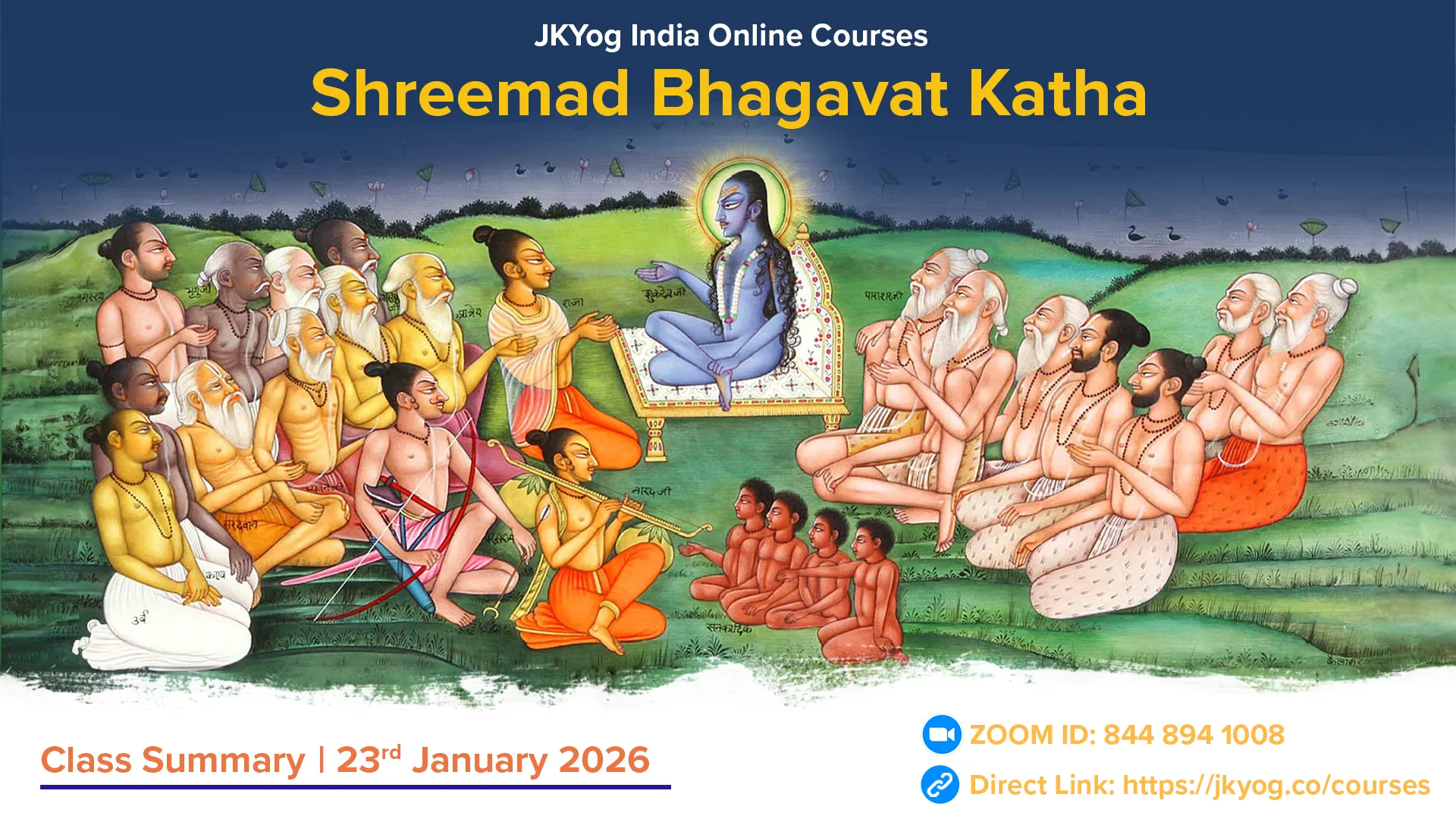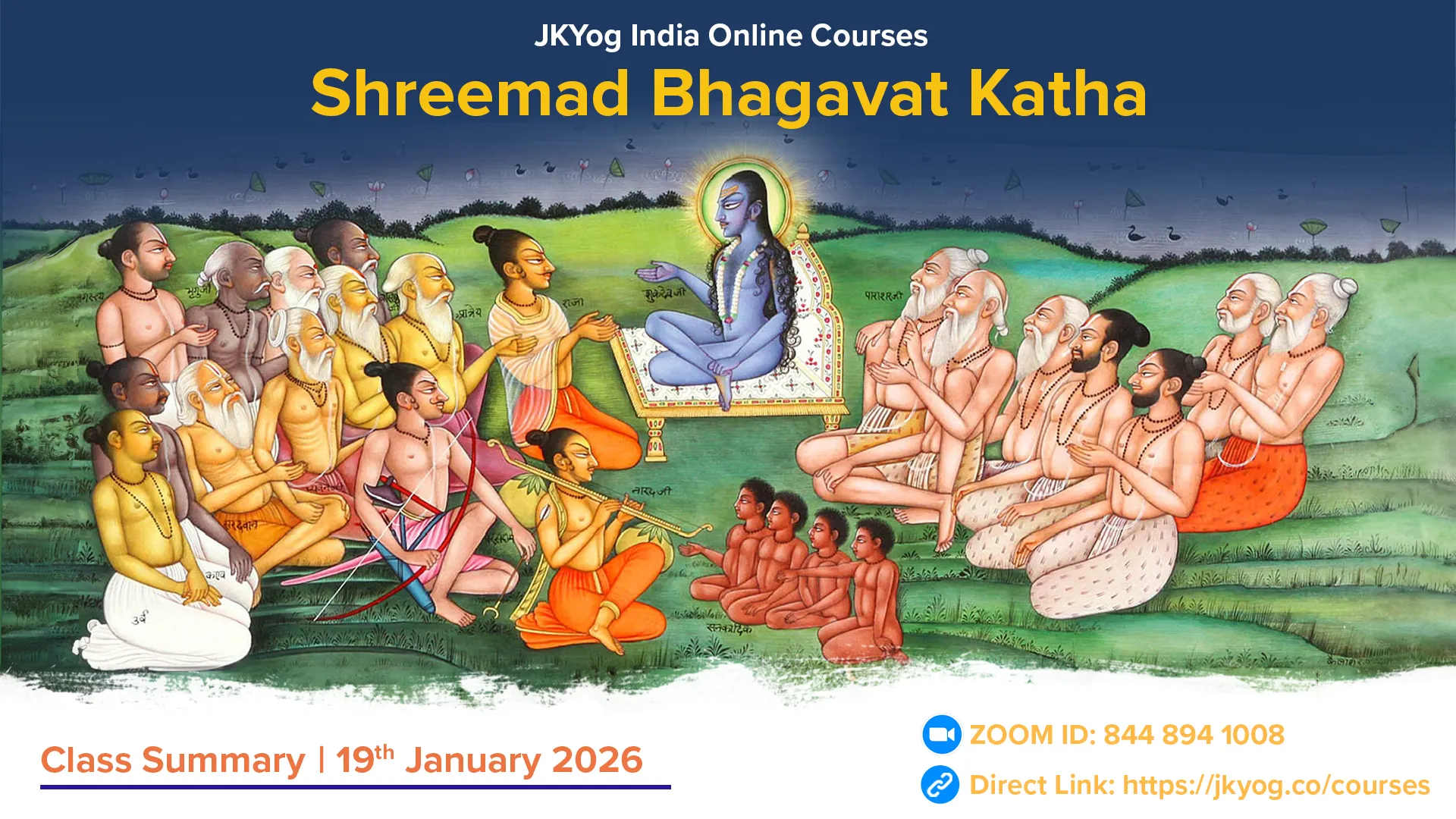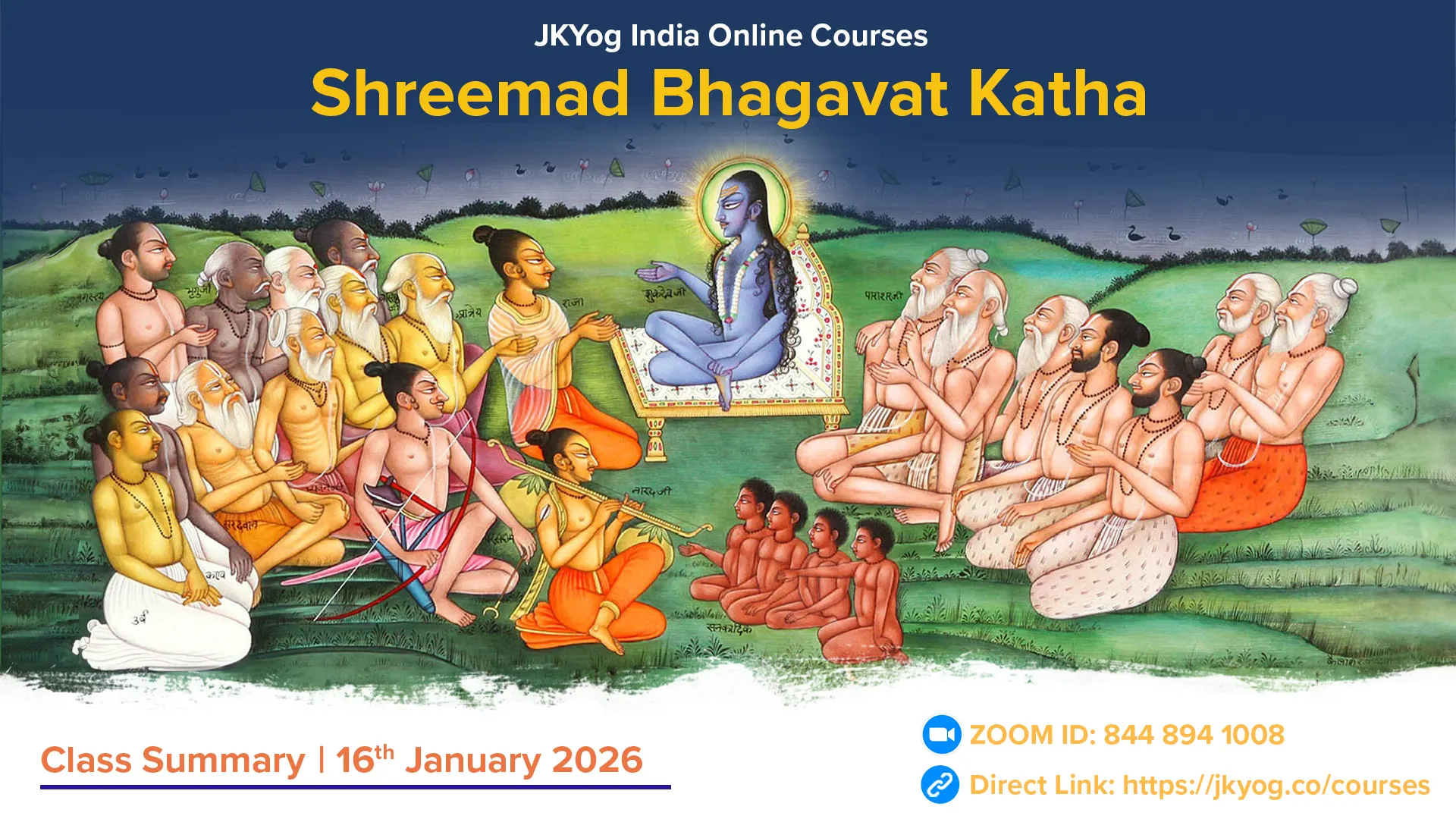Shreemad Bhagavat Mahapuran- Canto: 5, Chapters: 5-8
Bhagwan Rishabhdev, while imparting teachings to His sons and the Brahmins, said:
gururn sa syaat svajno na sa syaat pita na sa syaaj janani na sa syaat
daivam na tat syaan na patishcha sa syaanna mochayed yah samupeta mrityum
One who does not free their beloved relative from the noose of death by imparting the teachings of devotion to Bhagwan, is not a guru, is not a relative, is not a father, is not a mother, is not an Ishtadev, and is not a husband. (Bhagwat 5.5.18)
"The mystery of My divine incarnation and body is beyond the comprehension of ordinary beings. My heart is made of pure sattva (essence of purity), which forms the foundation of Dharma. I have completely cast away adharma (unrighteousness), which is why noble souls call Me 'Rishabh.' You are all born from My pure sattva-like heart; therefore, abandon envy and hatred. Recognise your elder brother Bharat and all living beings as extensions of My body, and serve them with pure intelligence at every step. To serve them is to serve Me, which is also your duty as rulers of the people."
Although Bhagwan Rishabhdev's sons were already enlightened, He gave them these teachings to set an ideal for Dharma and life for humanity. Among His hundred sons, Bharat was the eldest, the most virtuous, and a great devotee of God. Rishabhdev entrusted the kingdom to Bharat and renounced worldly attachments, embracing the life of a sanyasi (renunciate).
He abandoned even clothing and lived as a Digambara (one clothed by the sky). His hair was dishevelled, and He appeared as though mad. Taking on the renounced life, He left Brahmavarta and wandered. Rishabhdev maintained silence and would not respond even if someone tried to talk to Him. Acting like a dullard, lunatic, blind, dumb, or ghostly figure, He roamed as an avadhut (ascetic). He would wander through villages, cities, mountains, forests, cowsheds, and travellers' rest houses. People insulted Him—some spat on Him, some threw stones, and others abused Him—but He paid no attention. This was because He had transcended bodily and material consciousness.
Seeing that people were disturbing His yogic practices, He adopted repulsive behaviour. He would lie motionless like a python, eat as it came, and even roll in His own excreta. Adopting cow, deer, and crow behaviours, He exemplified extreme renunciation.
In this way, Bhagwan Rishabhdev taught the ideal of supreme renunciation to the Paramahansa (supreme ascetics). He constantly remained immersed in Bhagwan Vasudev, seeing all beings as manifestations of the same soul. Despite attaining complete self-realisation and various mystic powers—such as walking in the sky, moving at the speed of thought, vanishing, entering another body, hearing distant sounds, and seeing far-off places—He neither accepted nor respected these powers in His heart.
King Parikshit asked, "If such mystical powers come on their own, they cannot possibly cause attachment or suffering for liberated beings. Why then did Bhagwan Rishabhdev not accept them?"
Shukdevji replied, "Your observation is correct, but one should never trust this restless mind. It is the root of all enemies, such as desire, anger, arrogance, greed, delusion, fear, and the bondage of karma. How can any wise person trust it?"
Although Bhagwan Rishabhdev was a jewel even to the gods of heaven like Indra, He concealed His divine influence by adopting the attire, language, and behaviour of avadhutas (detached beings).
In the end, Bhagwan Rishabhdev decided to relinquish His mortal body to demonstrate the process of renunciation to yogis. Wandering through Konka, Venka, and the southern Karnataka regions, He reached the forest of Kutakachala. At that time, He was in a Digambara form, with dishevelled hair and a stone in His mouth, appearing like a madman. A fierce forest fire arose as bamboo trees rubbed against each other due to strong winds. The fire engulfed the entire forest, including Bhagwan Rishabhdev's body. This avatar of Bhagwan Rishabhdev was specifically for teaching those in the mode of passion the path of liberation.
Shukdevji said:
astvemanga bhagwan bhajtam mukundo muktim dadati karhichit sma na bhaktiyogam
God can perform numerous actions for His devotees and grant them liberation, but the devotion (bhakti) that is even greater than liberation, He does not easily give. (Bhagwat 5.6.18)
Salutations to Bhagwan Rishabhdev, who, out of compassion, guided those who, due to their constant pursuit of material pleasures, had long been unaware of their true welfare. Having attained the continuous experience of the true self, He was free from all desires.
The Story of Maharaj Bharat
Shree Shukdevji says, "O King! Maharaj Bharat was a great devotee of God. Bhagwan Rishabhdev entrusted him with the task of protecting the Earth. He married Panchajani, from whom he had five sons: Sumati, Rashtrabhrit, Sudarshan, Avaran, and Dhoomrketu. During his reign, this region, known as the Ajanabhavarsh, came to be called 'Bharatvarsh.' Maharaj Bharat, following the path of his ancestors, took care of his subjects, keeping them grounded in Dharma and regularly performed Yajnas (sacrificial rites) in the worship of Bhagwan according to the time and season.
While performing the Yajnas, Maharaj Bharat dedicated the merit gained from them to Bhagwan Vasudev. This made his heart pure, and he developed a profound devotion to Bhagwan Vasudev. After enjoying royal pleasures for one crore (ten million) years, he divided his wealth among his sons and renounced worldly life. He left for Pulhashram, where the Gandaki river, flowing with Shaligram stones, purifies the ashrams of sages.
Maharaj Bharat began to live in solitude at this ashram, where he worshipped God with leaves, flowers, tulsi leaves, water, roots, and fruits. As a result of his intense devotion, all his material desires vanished, and he began to experience supreme bliss. Meditating on the lotus feet of Bhagwan, his love for Him intensified so much that his heart melted, his body trembled, and tears of love flowed from his eyes. He became so absorbed in Bhagwat puja (worship of Bhagwan) that his mind was drowned in the ocean of blissful love, and he lost track of the puja rituals.
He wore the skin of a black deer on his body, and due to regular baths, his hair turned curly and matted. He praised Bhagwan Surya Narayan, who rises in the solar system, saying that Bhagwan's radiance transcends nature. It is that same divine light that creates, sustains, and protects all beings in this universe. We take refuge in that Supreme, radiant Bhagwan."
The Downfall of Maharaj Bharat
Once, Maharaj Bharat was bathing in the Gandaki river, engaged in his daily duties and meditation. At that time, a thirsty doe came to drink water at the riverbank. She was alert, but suddenly, the terrifying roar of a lion echoed from the nearby forest. Frightened by the lion's roar, the doe's heart trembled with fear. In a panic to save her life, she jumped into the river to cross it. However, she was pregnant, and in her fright, she lost her unborn child to the river's current. The shock and fear caused her to weaken, and she eventually died in a cave, separated from her herd.
Maharaj Bharat witnessed this tragic scene and saw the orphaned fawn floating in the river. His heart was filled with compassion. He took the fawn to his ashram and cared for it as if it were his own child. Gradually, Maharaj Bharat's attachment to the fawn grew. He tended to it daily, providing it with food and protection and comforting it. His focus shifted entirely to the fawn, so his regular duties, such as practising discipline, observing rules, and performing Bhagwat puja, began to slip away.
One day, when he was away from the fawn, he became extremely anxious, as though someone had taken away his wealth. He feared that the fawn might not return and became sorrowful. Maharaj Bharat felt desolate and lost without the fawn, praying to Bhagwan Surya that the fawn might safely return. He said, "Will that poor fawn return to me? Will it come back to take refuge in me?" His heart was overwhelmed with grief and longing, and he could no longer appreciate the beauty and peace of life without the fawn.
Maharaj Bharat's attachment to the fawn led him astray from his highest spiritual goal. Having once determined to remain absorbed solely in Bhagwat remembrance and spiritual practice, avoiding all distractions, he now became completelyengrossed in caring for the fawn. His attachment grew so deep that he forgot his true self and became entirely consumed with nurturing and pampering the fawn.
Maharaj Bharat's Rebirth as a Deer
When Maharaj Bharat's inevitable death overtook him, the fawn was sitting beside him, and his entire attention was focused on it. In this state of attachment, he left his body and was reborn as a fawn. However, because of the spiritual practice he had completed, his memory of his previous life was not erased.
After assuming the body of a deer, Maharaj Bharat, by the power of his past devotion, deeply regretted his fall from the path of renunciation. He lamented, "Alas! How unfortunate it is that I, once devoted to the way of great ascetics, have fallen! I had left all attachment behind, patiently, and sought the solace of a solitary, pure forest. There, I had placed my mind in God's service, but the same mind got attached to a small deer!"
Thus, with the awakening of renunciation in his heart, King Bharat, in his deer form, abandoned the doe (his foster mother) and left his birthplace at the Kalangjar mountain. He went to the holy region of Gandaki, a place beloved by sages and connected to Bhagwan. There, he stayed in the ashrams of Rishis Pulastya and Pulha. Even there, he remained preoccupied with past life memories and spent his days awaiting the end of the life of a deer. He feared the attachment that had overtaken him, and seeking solitude, he lived on dry leaves, grass, and shrubs, watching for the exhaustion of the karma that had caused his rebirth as a deer. In the end, he immersed his body halfway in the waters of the Gandaki river and left behind his deer form.
Summary: JKYog India Online Class- Shreemad Bhagavat Katha [Hindi]- 10.01.2025

